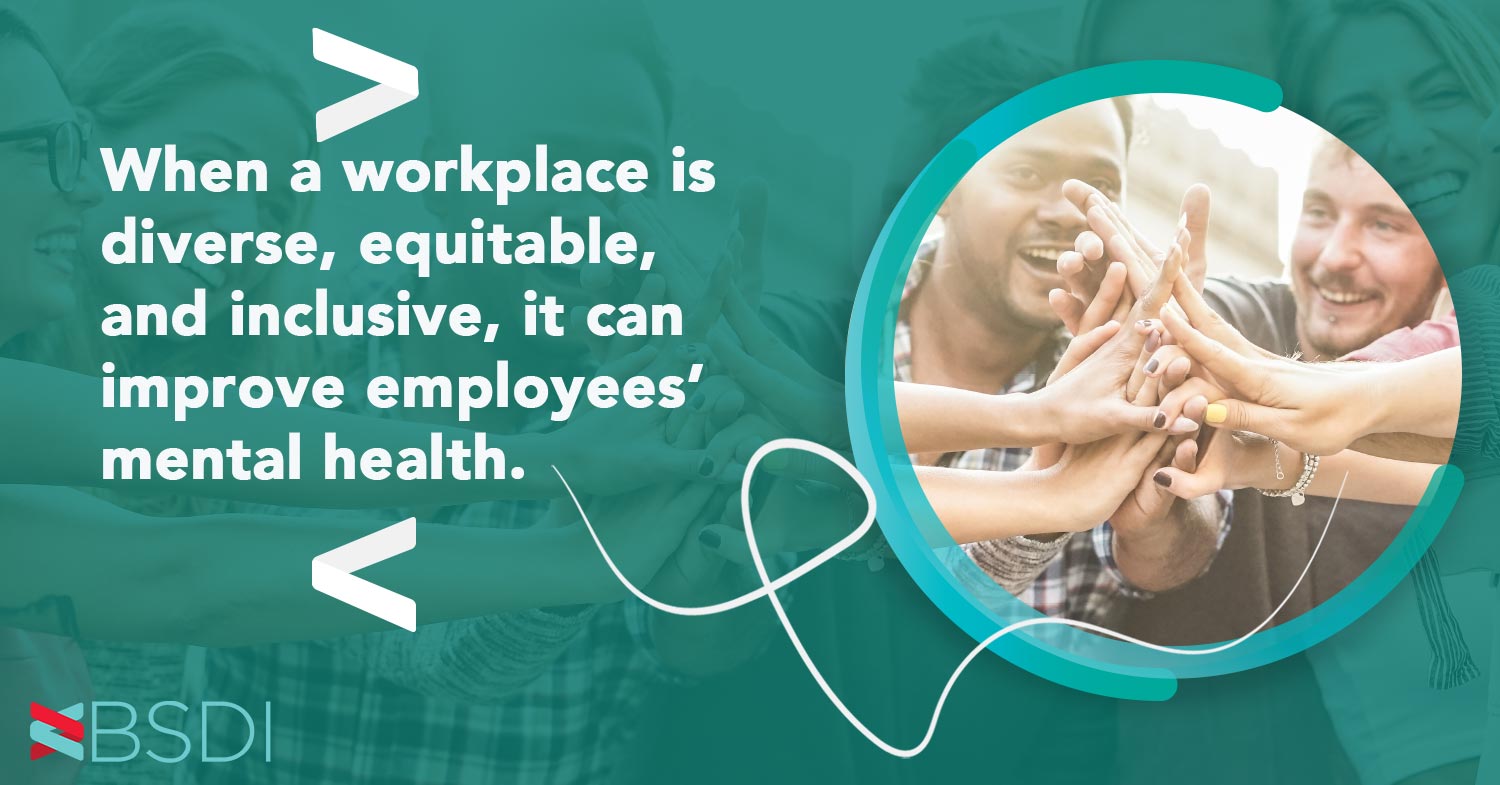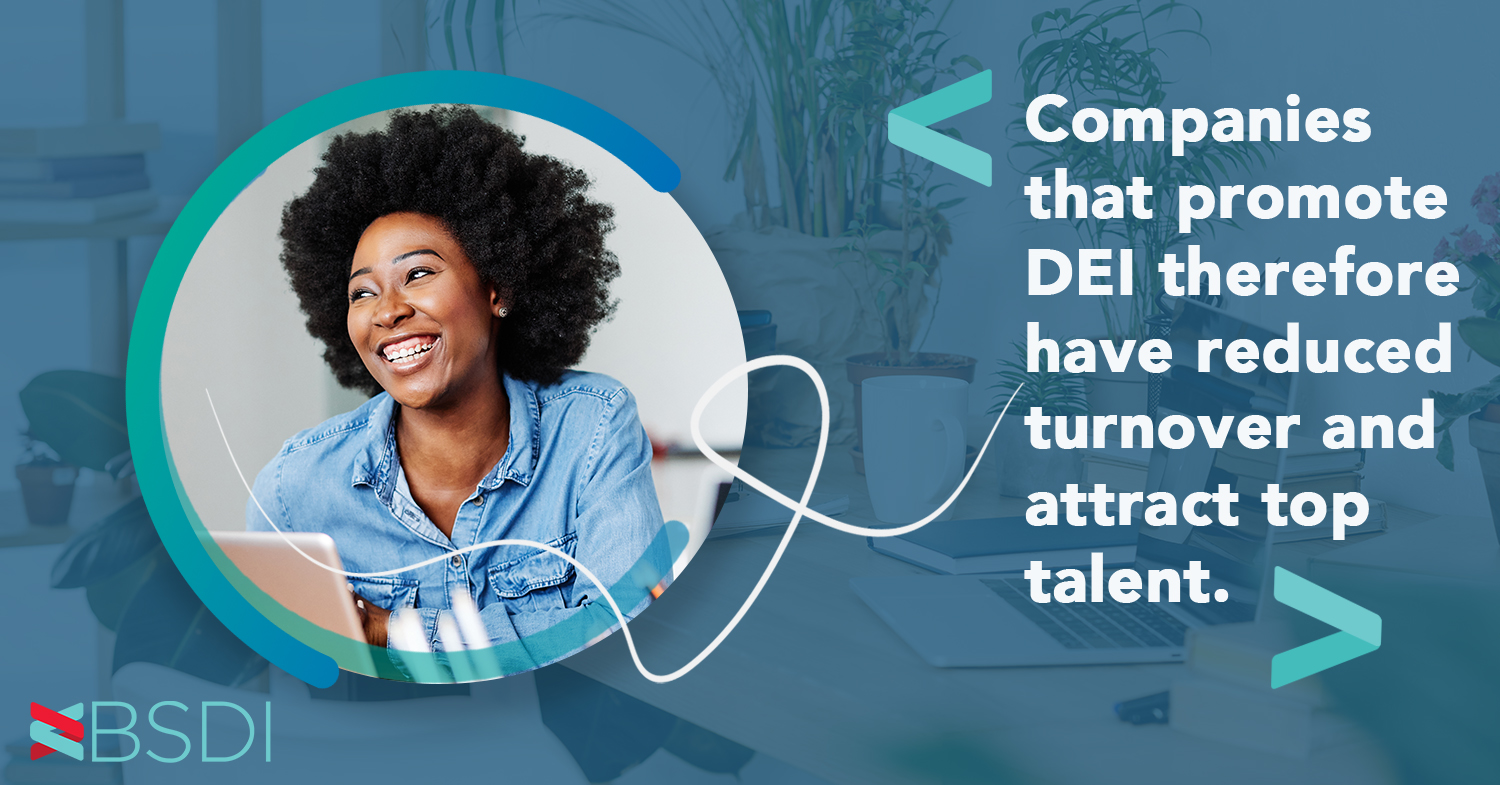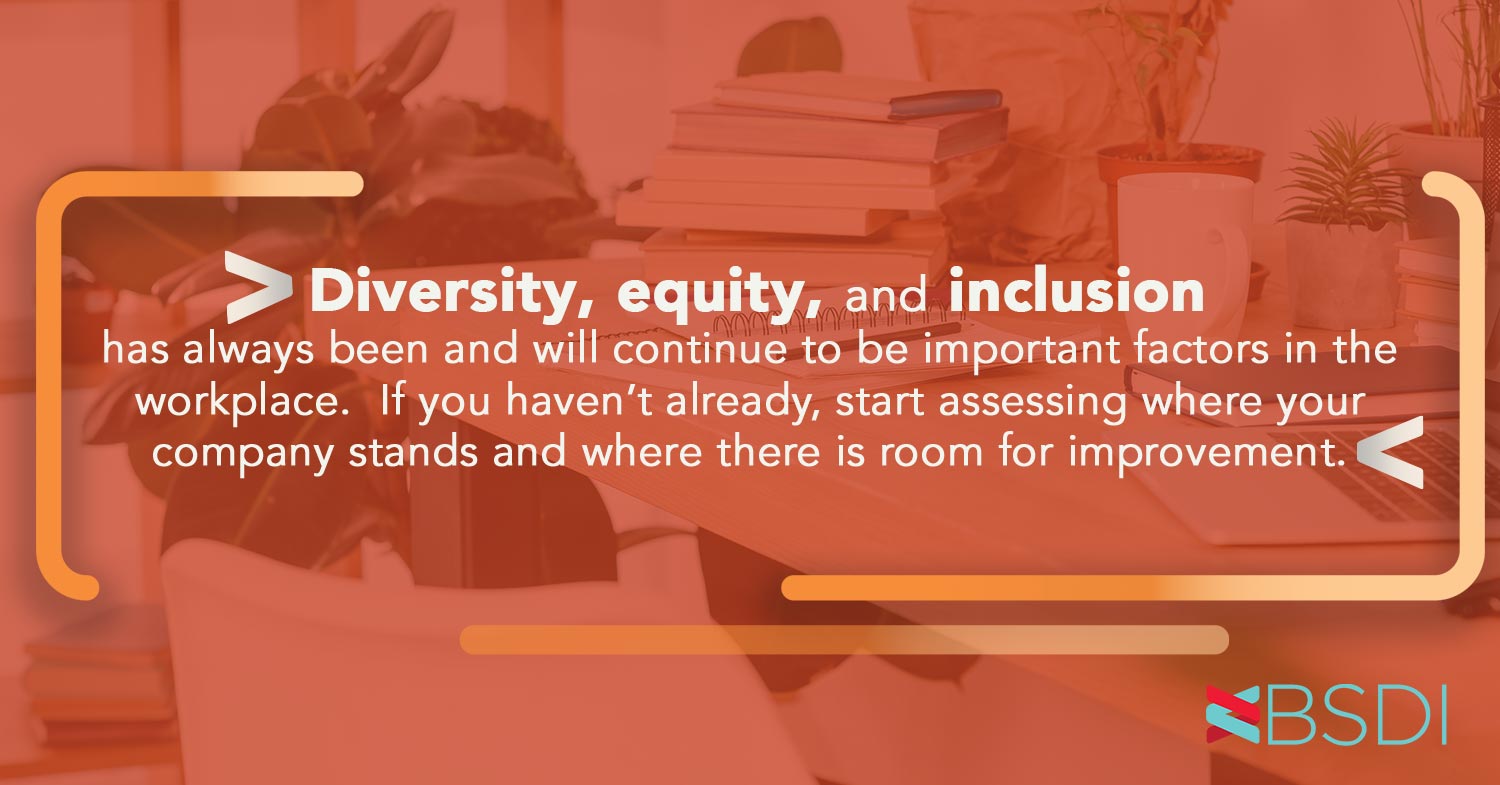
What is DEI?
You may have been hearing the terms Diversity, Equity, and Inclusion – collectively referred to as DEI – more frequently in the workplace recently.
Although certainly interconnected, each has their own distinct meaning that is important to understand.
Why is DEI important?
As you might expect, Diversity, Equity, and Inclusion all affect each other. If a workplace is diverse and promotes fairness, for instance, the likelihood that an individual feels accepted is much higher. Alternatively, if a workplace does not promote equity and inclusion levels are low, those who feel unwelcome may choose to work elsewhere where they feel more accepted and treated fairly. This would in turn further reduce levels of diversity.
DEI has significant impacts on both employee wellbeing and employers. When a workplace is diverse, equitable, and inclusive, it can improve employees’ mental health. Productivity and happiness are typically improved. Employees feel valued and celebrated, with a stronger sense of support and belonging. DEI also reduces discrimination, prejudice, and harassment as well as promoting safety.

For employers, promoting DEI in the workplace can also have many positive effects. A diverse team brings different perspectives and ideas to the table, resulting in increased innovation, productivity, and financial performance. In fact, McKinsey found that out of 366 public companies across a range of industries in the United States, United Kingdom, Canada, and Latin America, those in the top quartile for racial and ethnic diversity are 35% more likely to have financial returns above their respective national industry medians.
Further, when employees feel appreciated and that they are being treated fairly, they typically are happier, more productive, and have less reason to leave. Companies that promote DEI therefore have reduced turnover and attract top talent. This can be a huge cost-savings for a company. A 2013 study by Gallup found that disengaged employees and all that comes with – lower productivity, high turnover, recruitment and onboarding costs, etc. – costs a total of $450 billion to $550 billion annually in the United States.

Perhaps unsurprisingly, DEI has become more of a priority for employers in recent years. In fact, a Deloitte study found that 94% of CEOs agreed that DEI was a personal strategic priority in January 2021, with 90% of CEOs agreeing that their organization aspires to be an industry leader in DEI and 72% planning to disclose DEI metrics to the public.
How do you improve DEI at your workplace?
There are many ways to improve DEI. See below for some quick tips and ideas, but please note this list is not comprehensive.
Some items to consider: offering floating holidays so employees can take off for their religious and cultural holidays; paid paternity leave; ensure specific treatments are covered for a variety of people, situations, and health conditions such as those who may be hearing-impaired or identify as transgender.
Offer flexible and all-encompassing wellbeing programs that are accessible to your entire workforce regardless of language spoken, family demands, age, work schedule, health status, etc.
ERGs are voluntary, employee-led groups whose mission is to foster a safe, inclusive, diverse workplace for members of minority groups.

Diversity, equity, and inclusion has always been and will continue to be important factors in the workplace. If you haven’t already, start assessing where your company stands and where there is room for improvement. If you have already been working toward improving DEI at your company, keep up the great work. At the end of the day, we should all strive toward improving DEI in and out of the workplace.
***************************************************
Sources:
Deloitte. (2021, August 25). 2021 Fortune/Deloitte CEO Survey. Deloitte United States. Retrieved September 17, 2021, from https://www2.deloitte.com/us/en/pages/chief-executive-officer/articles/ceo-survey.html.
Gallup Inc. (2018, December 4). Report: State of the American workplace. Gallup.com. Retrieved September 17, 2021, from https://www.gallup.com/services/176708/state-american-workplace.aspx.
Hunt, V., Layton, D., & Prince, S. (2021, March 12). Why diversity matters. McKinsey & Company. Retrieved September 17, 2021, from https://www.mckinsey.com/business-functions/organization/our-insights/why-diversity-matters.
About BSDI
BSDI is a health and wellness technology company that powers flexible, powerful wellness programs. Our flagship Motivation Alliance platform is the most flexible, scalable, and customizable fitness and wellness software in the industry. Our platform is created to grow with you. Start simple and get more sophisticated as your program evolves and your confidence grows.